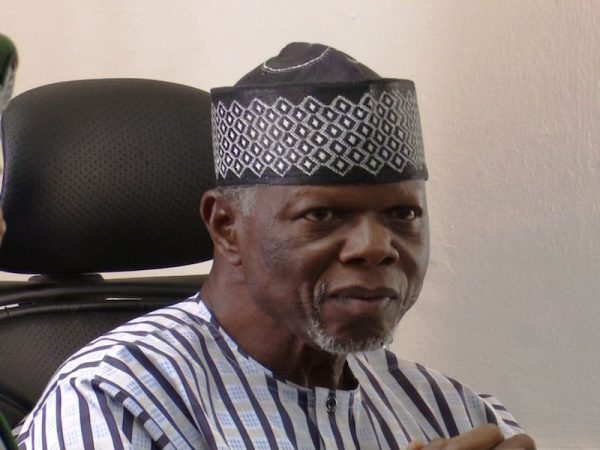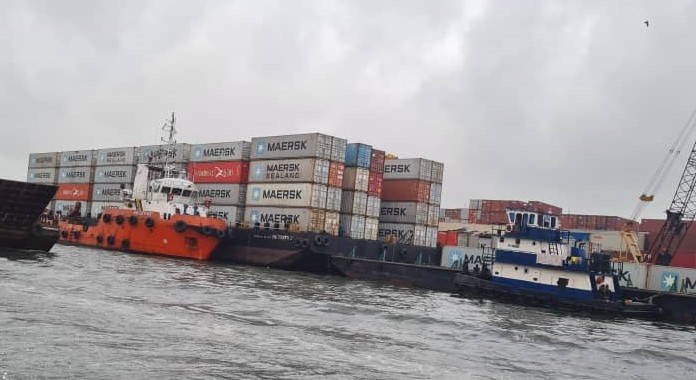NEWS LENS
Why National Single Window Hasn’t Commenced In Nigeria – Customs
· AfCFTA: Nigerian ports will be uncompetitive without single window – APFFLON
· Why multiple alerts, numerous units will remain – Shittu
By Kenneth Jukpor
Nigeria’s bid to ease the cargo evacuation process at seaports and curb the influx of substandard products into the country via an operational National Single Window project is being scuttled by a tussle for leadership among regulatory agencies at the seaports.
Some of the agencies jostling for the regulatory role include; Nigeria Customs Service (NCS), Standards Organization of Nigeria (SON), Nigerian Ports Authority (NPA), National Agency for Food and Drug Administration and Control (NAFDAC).
Nigeria is the only country without this single-window platform in Africa. This has made the cargo clearing process at Nigerian ports more strenuous and complicated both to importers and regulators, when compared to the practice at other ports, even in the West and Central African sub-region.
Single Window is a trade facilitation tool that can significantly reduce the time and cost associated with cross-border trade and expedite seaport transactions.
The Zonal Coordinator, Zone A, Nigeria Customs Service (NCS), ACG Modupe Aremu revealed that this inter-agency rivalry is currently the major hindrance, while engaging the national executives of the African Association of Professional Freight Forwarders and Logistics of Nigeria (APFFLON) in Lagos, last week.
APFFLON, led by its National President, Mr. Frank Ogunojemite, had identified the absence of a national single window as an impediment to expeditious cargo clearance at the ports, stressing that efficiency wouldn’t be attained at Nigerian ports until a national single window is available and operational.
Ogunojemite stressed that the absence of a national single window has placed Nigerian ports in a disadvantageous position with the African Continental Free Trade Agreement (AfCFTA) as the seaports will remain uncompetitive until the synergized online platform is developed.
He recalled that the single window platform was one of the major setbacks identified by the International Monetary Fund (IMF) team which visited Nigeria in 2020 amid preparations for the year’s economic outlook for Nigeria.
MMS Plus recalls that the Minister of Industry, Trade and Investment, Otunba Adeniyi Adebayo, stated in June 2020 that the National Single Window project as well as deployment of scanners at the nation’s seaports would take place before the end of the year, 2020.
The Minister was speaking at an investigative hearing on the incessant influx of fake, substandard and counterfeit products into the country, organized by the House of Representatives Joint Committee on Commerce; Industry; Information; National Orientation; Ethics and Values.
According to him, “this will significantly improve cargo turnaround time at our ports, promote efficiency and transparency, thereby removing the corruption opportunities that fuel the entry of substandard goods into the country, and enhance Nigerian ports’ competitiveness in the West African region.”
The Zonal Coordinator, Zone A, ACG Aremu noted that Customs would need to get a definite order from the federal government to take the lead, amid the continued struggle for leadership of the National Single Window.
She posited that until such clarity is provided by the federal government there might be no headway for the Single Window project, pointing out that Customs already has an efficient online portal, the Nigerian Customs Integrated System (NICIS II), which is linked to SON and NAFDAC.
Meanwhile, the Zonal Coordinator frowned at the unprofessional practice of having multiple alerts on a single consignment as it leads to delays in cargo clearance even as she advised freight agents and importers to avoid such complexities by being compliant.
Aremu stated that she would engage Area Controllers over multiple alerts following numerous complaints on the issue, adding that she already discussed the menace and its effects with the Area heads recently.
“We shouldn’t have five alerts on one container. It wouldn’t be tolerated at all. We have told the Area Commands, especially in Tin Can Island Command where the challenge is prominent as you have reported. However, the consequence of false declaration should be total seizure, but we are being lenient with the Demand Notices (DN). You have to talk to your importers and colleagues to do the right thing because we are partners in progress,” she told APFFLON leadership.
According to her, in a recent meeting with the Comptroller-General of Customs, Col. Hammed Ali (Rtd.), the Customs management looked at the challenges that keep freight agents at the ports for longer than the ideal duration and agreed that DNs shouldn’t take time to get to the Area Controller.
Speaking with MMS Plus on the reasons behind multiple alerts by Customs, a former President of the Association of Nigeria Licensed Customs Agents (ANLCA), Prince Olayiwola Shittu observed that the targets given to Area Commands and consequent propensity to make fiscal returns has turned every Customs unit into revenue collector.
“This issue of multiple alerts wasn’t the practice ten years ago, so we need to start asking how we degenerated to this point? Some of these alerts come from the headquarters but everyone knows that this practice is totally wrong. One of the problems is that every Customs officer has been given the power of discretion. The problem is such that some Area Controllers who tried to put guidelines or rules on these alerts have been summoned to Abuja because each Customs unit that has access to make an alert is answerable to one authority at Customs headquarters,” he said.
He noted that although Customs Intelligence Units (CIU), Valuation, Deputy Controller Revenue and every unit in a Customs Command should report to the Area Controller, such reports are merely for notification because some Area Controllers can’t query the alerts.
“For example, if someone places an alert on a consignment that paid N5million as duty saying the figure should be N10million and the Area Controller looks at it and agrees with the freight agent; the Area Controller will be reported to his superiors because the first notion will be that the CAC is compromised and he could be removed or penalized one way or another. That’s why these units seem to be very powerful. On the other hand, you find it difficult to explain this challenge to the senior officers at the headquarters because they would refer you to the Area Controller or say it is just a suspicion and you have to convince the CIU official that you did the right thing. This practice has slowed down the process of cargo evacuation,” Shittu said.
The veteran freight forwarder also stressed that after Customs examination officers refuse to release cargoes even though they are convinced that what is declared is correct, but they ensure the freight agent has gone through the various units.
Some of the alerts and Customs units which intercept consignments include; CIU, Valuation, Monitoring, Federal Operation Units (FOU), Customs Strikeforce.
However, at some commands like the Tin Can Island Port, freight agents have noted that the alerts are expanded to include APM Revenue and Special Assistants to the Area Controller, whilst the Command allegedly uses non-service personnel for dispatch of cargoes as a means to extort freight agents.
When contacted on these issues last week, the Customs Public Relations Officer at Tin Can Island Port, Mr. Uche Ejesieme said that complaints about the utilization of non-service personnel for the discharge of consignments hasn’t been brought to his notice at the command.
On the nuisance of multiple alerts, he said, “An item properly classified may have issues relating to value, while other items may have issues with valuation. So, these things are technical.”
“We had envisaged this because of the Command’s penchant for trade facilitation under the leadership of Comptroller Abdullahi Musa as the Area Controller at Tin Can Island Port. Sometimes, stakeholders refuse to comply with certain good concepts and initiatives that could address these issues. Last year, the Controller had a meeting with stakeholders where we agreed to have a one-stop-shop for alerts. The idea was to collapse all the alerts into one platform where all alerts will be reconciled. An office space was provided for this in Tin Can and facilities were provided.”
“We did it in such a way that the relevant units which make alerts always met to reconcile issues instead of allowing stakeholders to move back and forth on such issues. I can’t explain how that project was abandoned but I’m sure the fault didn’t come from Customs. We developed the template, created an office and put the facilities in place. I recall that the Controller led stakeholders on a site visit to the place because it was his brainchild.”
Ejisieme, however, assured that Tin Can Island Port Customs is trying to re-introduce that one-stop-shop platform for alerts in a bid to address stakeholders’ woes on the issue.
According to him, the units found in any Customs command are; Valuation unit –responsible for addressing issues that affect value, CIU is responsible for intelligence gathering, Post Clearance Audit to audit post clearance, Systems Audit for daily intervention on goods processed in the system, while resident officers examine cargoes, release them and perform other ancillary functions.
“Queries are bound to happen across these units but the major challenge is the issue of compliance which has become a recurring decimal in the value chain. These issues wouldn’t arise if freight agents and their importers resolve to comply with the extant trade rules. The Customs system is configured in such a way that alerts would usually come up when there are discrepancies in the documentation,” he argued.








